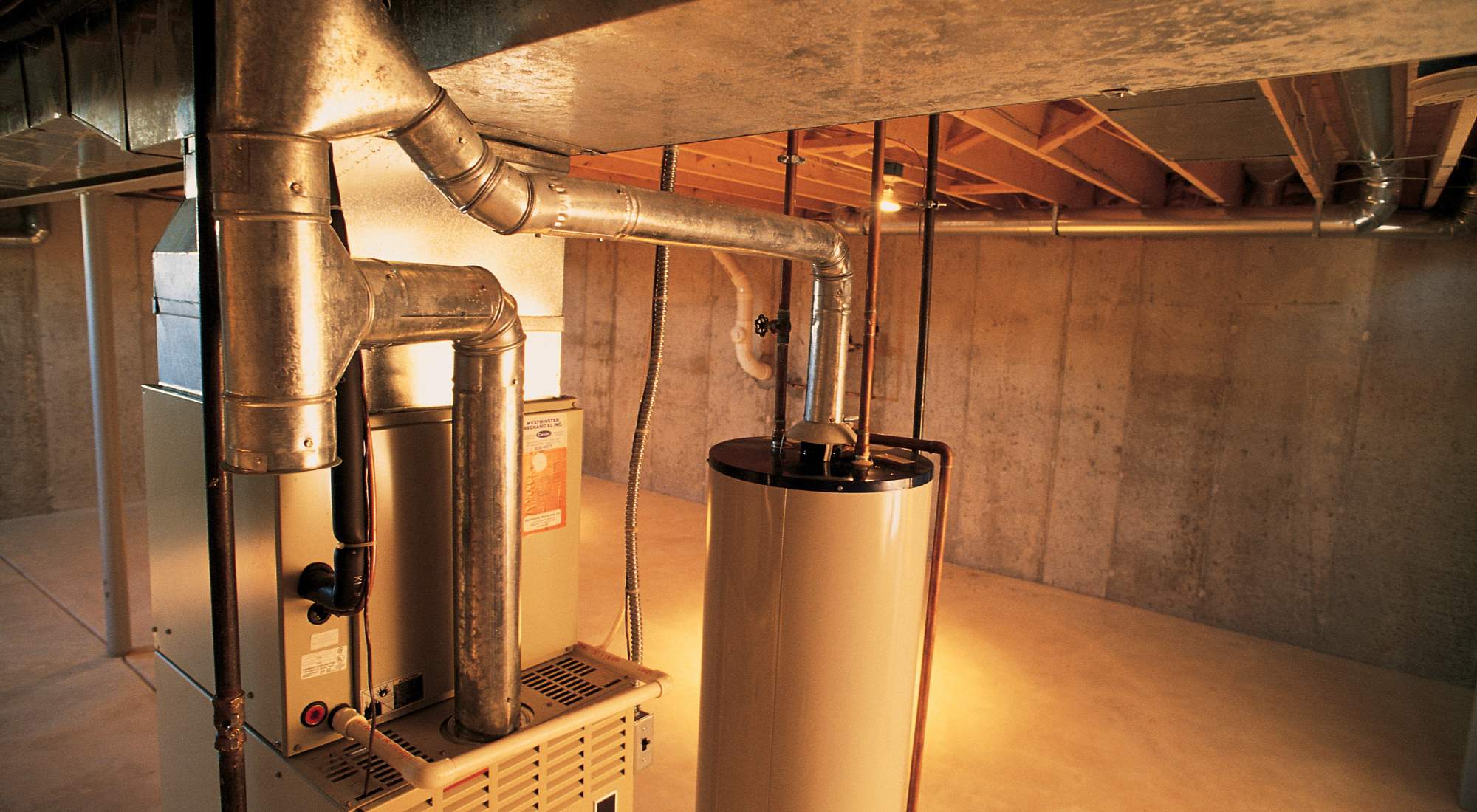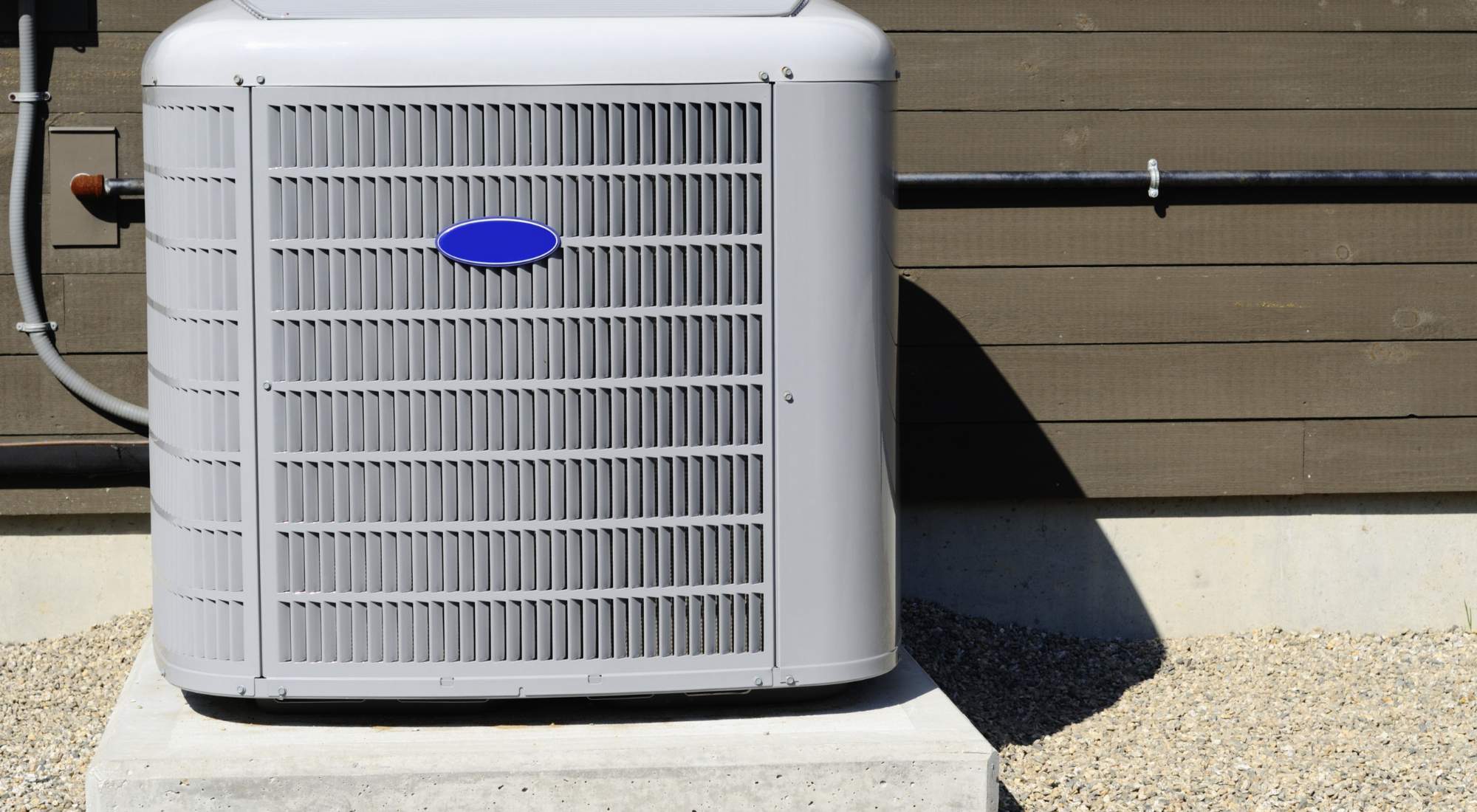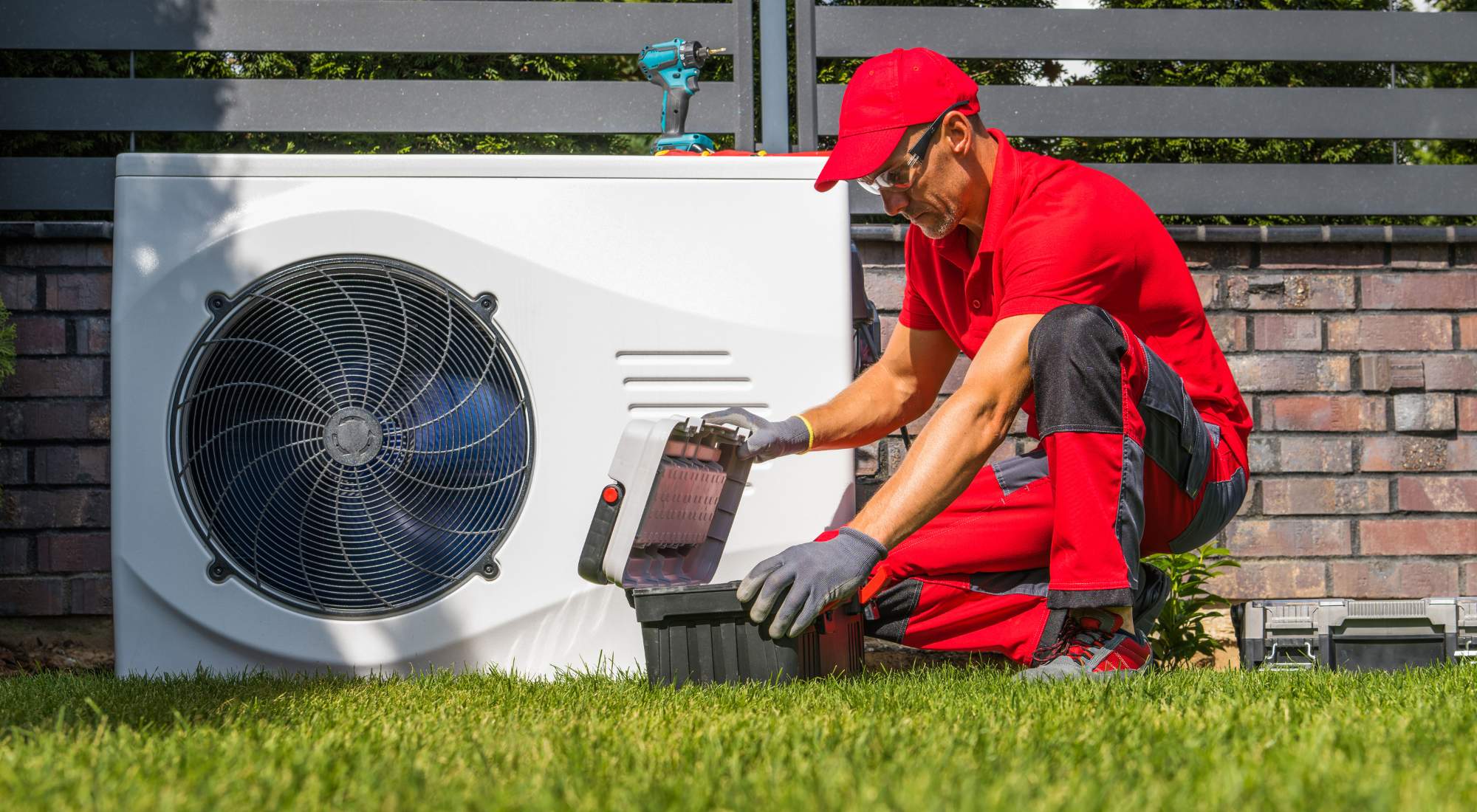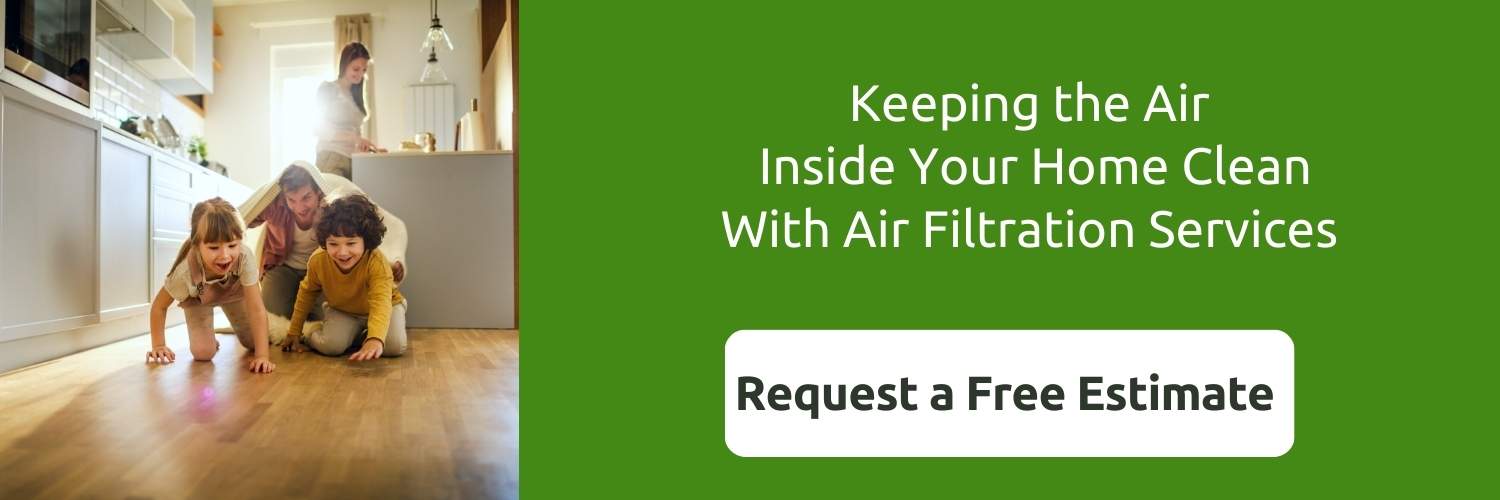Achoo, achoo, achooo!
Ugh. You’re sick of constantly sneezing when you’re at home. And are you going crazy or is the AC just not cooling like it used to?
From low air quality that leaves you sniffling your way through the day to temperature control that leaves you too hot or too cold — but never just right — HVAC problems can make life miserable.
But how do you know if you should repair your HVAC or just get a new one? How long do HVAC systems last, anyway?
We’ll tackle all that and more right here.
By the time you’re finished reading, you’ll have a robust understanding of how long your HVAC system should last and what might be causing its performance problems.
Table of Contents
- How Long Do HVAC Systems Last?
- Types of HVAC Systems and Their Lifespans
- Factors That Affect the Durability of HVAC Systems
- 7 Signs That It’s Time To Replace Your HVAC System
- When Is the Best Time of the Year To Replace an HVAC System?
- What’s the Best HVAC System To Choose When the Time Comes for Replacement?
- Trust PURE Environmental To Keep the Air Quality in Your Home Comfortable and Clean

How Long Do HVAC Systems Last?
Every system has a different life span and it all depends on multiple factors. For instance:
- When was the system made? Some of the oldest systems can last up to 70+ years while the newer ones typically only hold out for about 20 maximum.
- What brand and model is it? As with anything, different brands and models hold up better than others.
- The type of system you use. Not all HVACs are the same. They all have different lifespans.
Types of HVAC Systems and Their Lifespans
Not all HVAC systems look the same and they have different components. Some are more complex than others — or have smart tech — which affects how long you can expect them to hold up. The various types will also work differently.
Furnaces
Gas and oil furnaces are common for heating.
If taken care of, a good gas furnace can last from 20-30 years. If it isn’t taken care of, it might not even make it for 10.
An oil furnace generally lasts many years but the cost of maintenance and the fluctuation in heating oil costs can make these less desirable. Many of the older oil furnace systems have buried fuel tanks, these can fail and leak into the soil and be very expensive to decontaminate. Oil furnaces are often replaced with natural gas or heat pump systems before they actually fail in order to limit these concerns.
Typically the sign of death for a furnace is a leaking heat exchanger. Once these go, replacement is often the more financially responsible solution.
Sometimes the cost to repair the furnace may outweigh the cost to replace it, or the parts become obsolete
Boilers
A good heat boiler can last anywhere from 20-35 years, provided they are maintained well. Much like furnaces, their main reason for needing replacement is heat exchanger failure.
Air Conditioning Units
There are many types of air conditioning units, ranging from central cooling to window units.
Typically, an AC unit will last about 15-20 years but some only last 10. In coastal regions, the life expectancy drops to 7-12 years, due to the salt in the air and how it affects the machine.
Typically, the issues that warrant a replacement rather than a repair have to do with compressor failure or leaks and corrosion related to the condenser.
Heat Pumps
Heat pumps are reliant on energy instead of fossil fuels and gas. They are similar to AC units and can provide cool air as well, meaning they are used more each year than other heating solutions. This drops their life expectancy to an average of about 15 years. Again, they face significantly reduced usage time in coastal areas.
Heat pumps need to be repaired when the condenser has significant corrosion or leaks, or the compressor fails.
Factors That Affect the Durability of HVAC Systems
How long do HVAC systems last? It depends. Many factors can reduce the life of your HVAC system:
- Unduly high usage and load
-
- Overuse or using too small a system for your needs can cause the HVAC to go out before it should.
- Improper installation
-
- If your HVAC system isn’t properly installed, it will not function as it should and parts may die faster.
- Poor maintenance
-
- If you never change your car’s oil, it isn’t going to run well for very long. If you don’t maintain your HVAC as you should, you likely won’t have a functioning HVAC for long.
- Cleaning the supply and return ductwork every 3-5 years and replacing filters every 2-3 months will greatly improve indoor air quality and extend the life of most HVAC systems
- Oversizing or under-sizing your system
-
- If you get a system that is too big or too small for your space, you run the risk of it being ineffective or not holding up well.
- Improper usage
-
- If you’re running your heater with your window open or trying to cool down the house while leaving the screen door ajar to catch that summer breeze, you may have to bid your HVAC system adieu sooner than you’d like.
7 Signs That It’s Time To Replace Your HVAC System
#1: System Needs Frequent Repairs
The technician just let you know you’ll need a whole new blower motor. Last summer you replaced the thermostat and a month ago you had to have the evaporator coil repaired. Or was it the capacitor? No, that one was three months ago.
Either way, you’re sick of repairing your HVAC system. Plus, with the average cost of an HVAC repair being $450, it’s getting expensive to keep troubleshooting.
If you find yourself needing frequent repairs, that’s a good indicator that it might be time to retire your old HVAC and bring in a fresh one.
#2: Increased Energy Costs
The only fun bills are the ones that stay in your pocket. If you find that your energy bills are suddenly shooting sky-high with seemingly no explanation, your HVAC system is a pretty likely suspect.
As systems get older and begin functioning less efficiently, they use more energy to do less work — a little like how your brain acts from 2-5 PM on a Friday.
#3: Expiring Extended Warranty
Psst! We’ve been trying to reach you about your HVAC’s extended warranty!
If your system’s extended warranty is expiring soon, there may be a chance your HVAC is as well. This rings especially true if you’ve had lots of repairs lately or found your HVAC to be adding funky scents or sounds to your environment.
Even if your warranty is good to go, the age of your system can be a great indicator to let you know when you should start looking for replacements. An HVAC’s lifespan is dependent on dozens of factors but, typically, newer systems have a life expectancy of around 10-25 years, with 15-20 being more on the average side.
If your system is nearing its golden years, it might be time to retire.

#4: Inconsistent Temperatures
When you’re in bed, you’re absolutely freezing and cannot get enough blankets. But you and your family are always burning up when you’re hanging out in the living room.
If you relate to the agony of inconsistent temperatures in your home, your HVAC just might be to blame.
#5: Less Than Ideal Indoor Air Quality
Air quality is about more than just liking the way your home smells. Poor air quality can be a huge health hazard.
Dust and mold can affect your lungs, making it harder to breathe and causing coughing and sneezing. These nuisances can become huge issues if left unchecked, especially if mold is at play.
A failing HVAC will struggle to keep up with ensuring your air quality remains healthy.
At PURE Environmental, we specialize in improving your indoor air quality. Using the innovative Ameircare HEPA filtration technology, we safely remove mold and other contaminants from your air.
#6: System Making Noises or Gives Off Odors
Whether you’re into candles, reed diffusers, or essential oils, you — not your HVAC — should get to decide how your home smells.
A system that needs to be replaced might give off strange odors such as musty or “hot.”
If your HVAC is beginning to sound like your great-uncle’s ‘86 Town Car, you’re probably going to want to get a consultation for a new system.
New sounds and scents are not a good sign when it comes to your home’s temperature regulation system.
#7: Use of Fossil Fuels or R-22 Freon
AC units more than 10 years old often require R-22 Freon, a substance that is incredibly harmful to the environment and is being actively phased out across the US.
R-22 Freon isn’t even in production anymore. As time goes on, it will be increasingly difficult to find and prices will skyrocket. It is likely that, in the coming years, the rising costs of refrigerant alone will warrant an upgrade.
Freon isn’t the only outdated temperature regulation method. Some heating systems — again, typically the older ones — rely on fossil fuels to keep you toasty in the winter months.
This is less than ideal for several reasons:
- Heating oil and fossil fuels are expensive and their price (and availability) is constantly fluctuating.
- They are less efficient than their counterparts.
- They increase your risk of exposure to harmful substances and up your chances of experiencing carbon monoxide poisoning.
- Fossil fuels and natural gasses need to be conserved for the sake of the environment and the generations to come after us.
Reach out for a free estimation today.

When Is the Best Time of the Year To Replace an HVAC System?
It’s the dead of winter and a cold snap just hit. A typically chilly day is now nearly insufferable. When you step outside, the first thing you notice isn’t even the cold — it’s that every inch of your body suddenly hurts.
So you hunker down at home and put a pot of soup on for dinner. But your toes are cold. And now, come to think of it, so is the rest of you. “I’d better turn up the heat, it’s freezing in here!” you think to yourself.
And so you do. Or at least you try. But it’s just not working. You’re beginning to wonder if you should google the symptoms of hypothermia, just in case.
Unsurprisingly, this is not an ideal time for discovering your HVAC system isn’t up to par.
The best times of year to replace HVAC systems are the shoulder seasons, AKA fall and spring — when the weather feels somewhere in between Antarctica and the Great Sahara.
During peak hot and cold seasons, technicians are much more likely to be busy and parts are harder to come by. If you know that your HVAC system is on the fritz, your best option is to plan the repairs/replacement when you don’t desperately need to use it.
What’s the Best HVAC System To Choose When the Time Comes for Replacement?
With so many options available, it might be hard to know the best option for replacing your HVAC.
One rising star in the industry is heat pumps.
Heat pumps are more efficient and can help drastically reduce energy costs. Since they don’t use fossil fuels, heat pumps are better for:
- Your health
- Your wallet
- The environment
The best part? There are even rebate programs to encourage people to move towards heat pumps instead of other heating and cooling options. Depending on what you qualify for, the rebates and saved money alone might be enough to make it worth your while to update your system.
Trust PURE Environmental To Keep the Air Quality in Your Home Comfortable and Clean
At PURE Environmental, we are dedicated to ensuring that your home has clean, comfortable air quality. We specialize in everything from odor removal to air filtration and bed bug removal.
Your HVAC is a great place to start when it comes to getting superior air quality but you often need more. That’s why we help you find the right solution for your space to ensure your air quality stays where you need it to be.
We are proud to offer our customers incredible customer service and timely solutions.
Recent posts
- Pros and Cons of Heat Treatment for Bed Bugs: Things To Consider When Reviewing Your Options for Remediation
- How To Get Rid of Pet Odor in Your House
- Clearing the Air: How To Clean Walls From Cigarette Smoke
- Deodorizing Your Living Space: How To Get Rid of a Musty Smell in Your House
- How Do You Get Rid of Mold in Your Attic? Tips from the Professionals
Recent Posts
- Pros and Cons of Heat Treatment for Bed Bugs: Things To Consider When Reviewing Your Options for Remediation
- How To Get Rid of Pet Odor in Your House
- Clearing the Air: How To Clean Walls From Cigarette Smoke
- Deodorizing Your Living Space: How To Get Rid of a Musty Smell in Your House
- How Do You Get Rid of Mold in Your Attic? Tips from the Professionals
